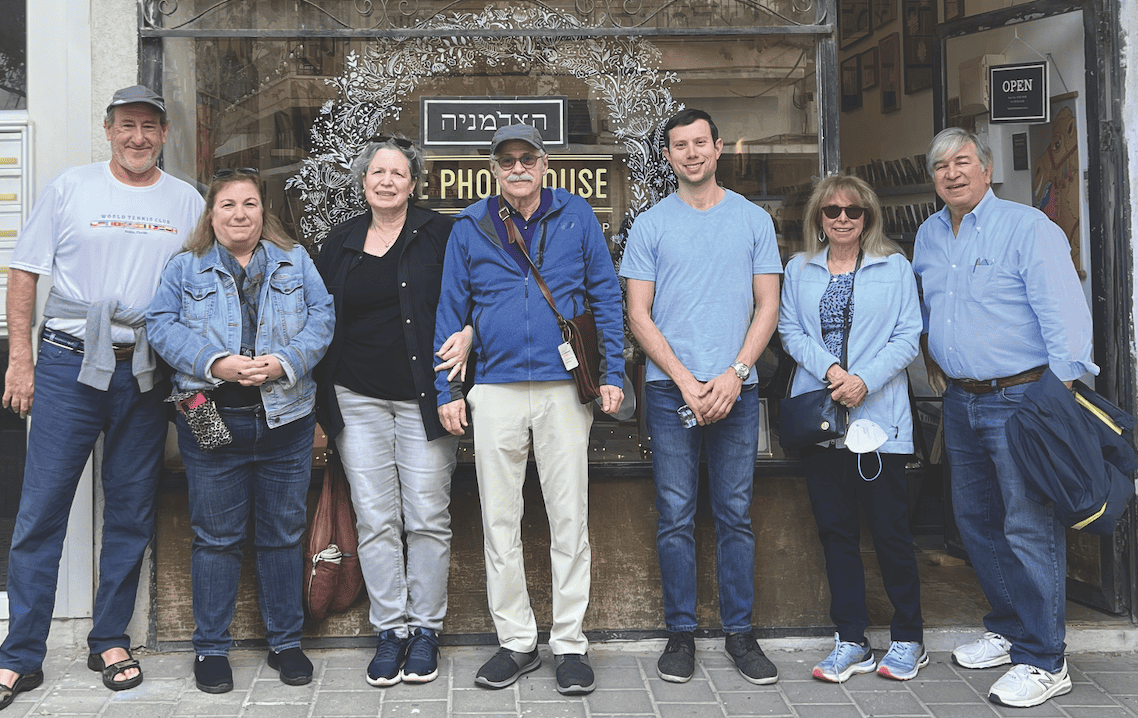Don’t Tell Your Brother
Meir Shalev
Am Oved Publishers, 2022
263 pages
Close to one million Israelis live in the United States and Canada. I happen to be one of them. Thus, Don’t Tell Your Brother by veteran and master Israeli author Meir Shalev (born in Nahalal, Israel 1948), whose books have been translated to 26 languages, piqued my interest. The novel’s protagonist, Itamar Diskin, born in 1945 in Jerusalem and myself the same year in Kazakhstan (USSR), lives in Charlottesville, Virginia for 35 years, while I reside in Virginia Beach for the same time, though I arrived in Chicago in 1966. Itamar annually visits his younger brother Boaz and wife Maya in Tel Aviv, and I annually visit my family in Haifa.
The enthralling account focuses on a web of intriguing relationships in an Israeli context. Itamar is single and very handsome as Boaz tells his brother, “Like what mother used to say about you: “’ Itamar is the calf that Abraham offered the angels.’” Itamar is co-owner of a private gym in Charlottesville with his extensive military background as a body-training officer in the IDF’s Air Force, whereas Boaz served as a chief on a submarine. Itamar’s appearance attracts clients, particularly women. His transition from Israel to the States followed traumatic events. His father, Yechiel (also my father’s name), a lawyer and a colorful character, died. Michal, his girlfriend and an ex- Air Force intelligence officer, left him after five good years and five bad weeks that closely resonates with Biblical Joseph’s dream, reflecting the author’s fondness for the Bible.
Though Itamar’s initial plan was to recover and return home to Israel where he was born, grew up, had his family, friends, language, and culture—that did not materialize as is the case with many Israelis—even with some coming here on official Israeli assignments. Apparently, America is too enticing.
Itamar shares in a somewhat confessional, “I wanted to travel in a large and distant country in which I don’t have memories, plans, family.” With a chuckle, he tells his brother Boaz, “For this very purpose America was discovered for me.” He rented a small car, aimlessly traveling to small towns on side roads till arriving in Virginia that was destined to become his home and my own. “The last state journeyed in was Virginia where I was tempted to enter a city named Charlottesville. A small city but larger than the others I had previously visited. I didn’t yet know then how important was that city in the history of the country that would become mine, and I couldn’t imagine how important and good it would be in my own history.”
Michal, Itamar’s past love, introduced him to poetry when joining her for an evening dedicated to Yehuda Amichai (1924–2000) with the famous poet present in the packed hall. Consequently, Itamar was turned on to poetry. I too am fond of Amichai’s popular poems (He received the prestigious Israel Prize for Poetry in 1982), vividly recalling his visit in the early 1970s to Cincinnati’s Hebrew Union College where he recited his prosaic and profound poetry in his unassuming manner.
Amichai was born in Germany, immigrated in 1936 at age 12 with his parents to then Palestine and fought as a Palmachnik in the 1948 War of Independence. His generation represented the admired pioneering “Eretz Yisrael Hayafa,” though admittedly it was a “macho” society where poetry and literature generally were reserved for women’s studies. Back then, an Israeli living abroad was derogatorily considered a Yored, one “Going down,” on the verge of a Boged, no less than a traitor. Currently there is hardly an Israeli family that is not represented in the States, now a source of pride attesting perhaps to a normalized society with both a complex past and present while continuing to evolve.
Nowadays moving away from Israel is regarded as simply “leaving” with no criticism attached or a “relocation” spelled in Hebrew letters, one of multiple English words penetrating Hebrew with obviously the failed past attempt to keep Hebrew “pure,” yet with added new Hebrew words and forms. Indeed, American culture’s impact on Israel has been massive. Just as the novel’s protagonist, Itamar, is not in touch with the American Jewish community, so Israeli Americans tend to keep to themselves albeit experiencing a high rate of intermarriage with non-Jews. Curiously and ironically, the entire literary and life legacy of Amichai, once an iconic super-Israeli, is preserved at Yale University.
Meir Shalev’s endearing, rich, and layered Hebrew prose is often expressed in enchanting poetic form such as the following, both celebrating and mourning Itamar’s lost love of Michal—though something precious may be lost in translation: “A branch moving in the wind, for once we slept under the tree. Your glowing face above me. Tiny and happy pebbles penetrated my back: We too are here. Participating. Sorry to be a bit thorny. The tree was excited. Its leaves were humming. The sun dropped off them melted gold.”
Rabbi Dr. Israel Bobrov Zoberman is founder of Temple Lev Tikvah and Honorary Senior Rabbi Scholar at Eastern Shore Chapel Episcopal Church, both in Virginia Beach.
Son of Polish Holocaust survivors who met in Siberia, he was born in Chu, Kazakhstan in 1945. He spent his childhood among refugees in Poland, Austria, Germany, and Israel. Rabbi Zoberman grew up in Haifa, Israel and served in the IDF in the 1960s.
He arrived with his family to Israel from France on the boat, Independence on Israel’s first Independence Day in May, 1949.
–Reviewed by Rabbi Israel Zoberman

